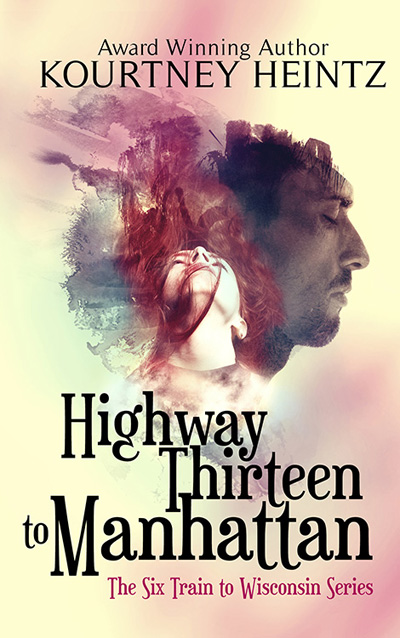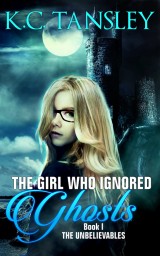 Leon Shure has graciously agreed to share his experiences with indie publishing with me. This is Leon circa the early years. I met him at a conference a few years back where we suffered the slings and arrows of agents together. By then he was a full-grown adult, but neither of us escaped unscathed.
Leon Shure has graciously agreed to share his experiences with indie publishing with me. This is Leon circa the early years. I met him at a conference a few years back where we suffered the slings and arrows of agents together. By then he was a full-grown adult, but neither of us escaped unscathed.
I see in your Smashwords profile that you’ve been very prolific at indie publishing, can you share your thoughts on the hardest and easiest part of indie publishing your e-books?
I’ve been self-publishing since September 2010, about two years and a quarter ago, and have six mysteries and two books of puns for sale at all the e-book stores.
I’m prolific because I’ve given myself permission to write. I’m a big believer in learning by doing. I am an imperfectionist. If I waited for my books to be perfect, I’d never publish. The ability to write evolves. Each book is better than the last. Because I can make mistakes, I can write a lot. If I’ve written something really dumb, I know I’ll catch it in the second draft. Also, I know that no matter how I try, I will never catch all the grammatical errors. I do my best with spell-checkers in the word processing programs. I spend a lot of time unscrambling my sentences so that they don’t draw attention when I don’t want them to stop the reader in his tracks. I believe the reader would rather read something authentic than scrubbed.
I think most writers go through an initial period where their work is awful and should never see the light of day. Then one day, it just seems that your writing is good enough. I started to publish the day after I realized that my work was ready for public inspection.
Did you format the e-books yourself or hire a company to help you? If you did it yourself, how hard was it to do? Any tips you’d pass along?
Self-publishing isn’t hard and, above all, it is not expensive. If you can bear to do your own formatting and editing, it’s free. My only cost of publishing is the money I pay to get a decent cover.
My advice on self-publishing is not to allow yourself to be overwhelmed by the technical requirements. I’ve been using Smashwords (www.smashwords.com) and, if you follow the clearly written directions on the website, you can format your own work. If it turns out that your book has some internal formatting problems that can’t pass the “meatgrinder,” you can always use the “nuclear option” of copying your book into Notepad to remove all formatting and to begin over. The hardest part is doing the formatting the first time. After that, you can copy your latest novel into the format you created, then delete the previous book from that. Then it’s only a matter of putting the correct number of spaces between chapters.
If you need help in formatting, many people can be found on the internet to help you. Besides Smashwords, there are many other “aggregators” on the net, which will distribute your books to the various e-book stores in the correct file type.
I want to say a few words about the marvelous program, Scrivener. This cheap, $45 program makes organizing a novel much easier and allows you to keep track of your characters and plotting. It is possible, although I haven’t tried it yet, to format from Scrivener directly into the file type used by Amazon.
Your covers are very eye-catching, did you hire someone to design them or did you create them on your own?
Many artists are available on the internet to create a decent cover, and some will charge $50 or less. I was lucky enough to have a personal friend, Gabi Ladowski (www.gabiladowsk.com ), who will make me a cover for $100. When I’m three-quarters through a second draft, I send him an e-mail with the plot and describe several of the most dramatic scenes in the mystery. He sends me a few sample covers, and there always seems to be one that is best.
Just like there is no perfect novel and no perfect blurb, etc., there is no perfect cover. One of the great things about self-publishing is you can go back after awhile, and redo the cover, if it isn’t working for you. When it turns out that I’m writing a series, I like to go back and have covers that look somewhat similar in theme.
What sort of marketing plan did you use to get the word out about your books? What do you wish you’d done differently/what worked out better than you expected?
I have never advertised and I’m selling books.
The common advice to create a platform is true. If you can do a blog, great. I personally don’t have anything interesting to say each day or even each month. I used my Twitter account to write puns, then published my tweets. I now have two books of puns for free on Amazon. The price is right and I’ve had thousands of downloads worldwide.
The trick to selling books is having people come to your pages at the e-book stores. If they’ve read my puns, I’ve reached my market: smart people with a sense of humor who are trying to understand the world. I believe there is a market for every writer. Among the billions in the world, you can find 1000 readers who appreciate what you write. I’ve found readers in Australia, Wales, Ireland, Canada, and everywhere else English is spoken.
Readers read series, and everyone tries to come up with a character that can be used again and again. This isn’t anything new, of course. For example, Sherlock Holmes. To attract readers, I make the first of a series the cheapest, often free, at least for a while. A whole network on the internet exists to spotlight free books. Google my name for examples. Every time a free book is mentioned on one of these sites, I get multiple hits on my pages at the e-book stores.
Another thing about free books is that they get multiple reviews. Readers seem to really like my books or to really hate my books. It’s important to keep a good attitude about this. Even the worst reviews can be helpful. My first long review was from a lady in New Zealand. I couldn’t believe anyone would actually sit down and review, at length, what I’d written. Even though she only gave me two stars, she had some valuable things to say. I’ m trying to write books that are read, and any feedback can be useful.
Knowing what you know now, would you still indie publish your e-books?
Self-publishing has been a wonderful experience for me. It’s totally unique. When else in history has a writer had a world market? Never and never one where you can reach a reader in his own home. I feel like I have a connection with people I would surely never meet in life. I’m not going to make a lot of money in self-publishing, but really, only a few people make money in any of the arts. There may be 25 stars in Hollywood, a few hundred who do supporting roles, then there is the rest: the travelling stock companies and unpaid weekend actors. It’s like that in writing too. A few stars, and the rest of us. Even the stars aren’t going to be read in a generation. Not to be depressing, but only a tiny number of books that are published are read in the following century. I always get a kick out of the old movies based on a then current best seller no one has ever heard of today.
It’s better to be out in the world and doing your best.
Bio
Leon Shure has published four mysteries, all taking place in the wealthy and diverse North Shore suburbs of Chicago. These are “Fatal Sisters,” “The Baba Yaga, a Dr. Adam Karl Mystery,” and “Screams and Bleeds, a Vanek Mystery,” and “The Search for Hanson Sted, a Cal Hodges Mystery,” Another of his books, a free collection of his Twitter tweets “#Conversationstopers: Puns, Non Sequitur, Impossible Scenarios” became a ebook best seller, with almost 10,000 downloads and a second collection of his #Conversationstoppers has been published. A new series, the Kate Wehring Mysteries, will be published this summer, starting with two books.
Shure is a life-long resident of the Chicago area, and has lived both in the city and in the North and Northwest suburbs. A bachelors and masters graduate of Northwestern University’s Medill School of Journalism, Shure worked for the Lerner Newspapers (a chain of weeklies in the city); the Day Newspapers, a suburban daily newspaper chain owned by Field Enterprises, now the Chicago Sun-Times;, and Paddock Publications, a chain of daily newspapers in the Northwest suburbs, where he worked as a police reporter. He received the Jacob Sher Award for Outstanding Investigative Reporting.
Excerpt
I could not see the malevolence in his face.
My “seeing eye woman” flung her body against my side, knocking both of us to the cold airport terminal floor. I instinctively struggled to rise. Kayko recovered faster, fell off me, sat up and, straight armed, used all the weight she could leverage to push me back down. “Just stay there!” she whispered.
An explosive discharge echoed off the sides of the airport walls. I heard robotic outbursts I could not interpret.
The gunman turned and ran, pushed hard against a non-automatic door, exited into daylight and kept running. Men in blue shirts, running just as hard, banged the door against its casings as they rushed to follow.
I looked behind me to see if anyone was hurt. I saw only blank faces, but no one was on the ground. Security guards from the nearby gates surrounded us, lifted us to our feet, held us by our elbows and pulled us towards an office about 50 feet away. “Stay here until you are debriefed,” one guard said and closed the door.
You can purchase Leon’s books via:
You can find Leon online at:









40 Responses to Five Questions on Indie Publishing with Leon Shure